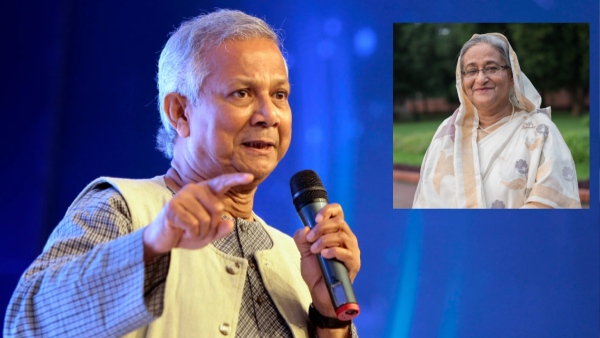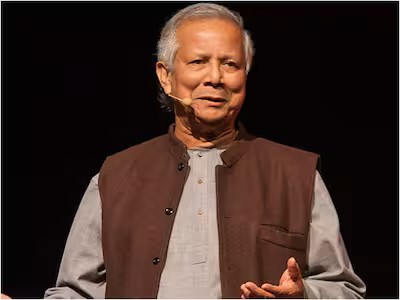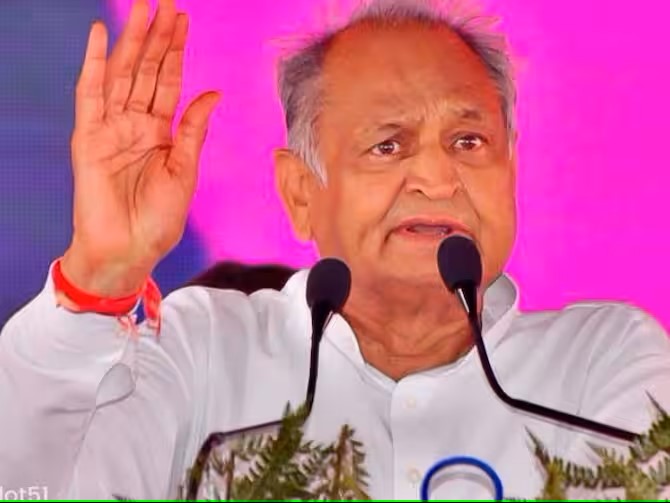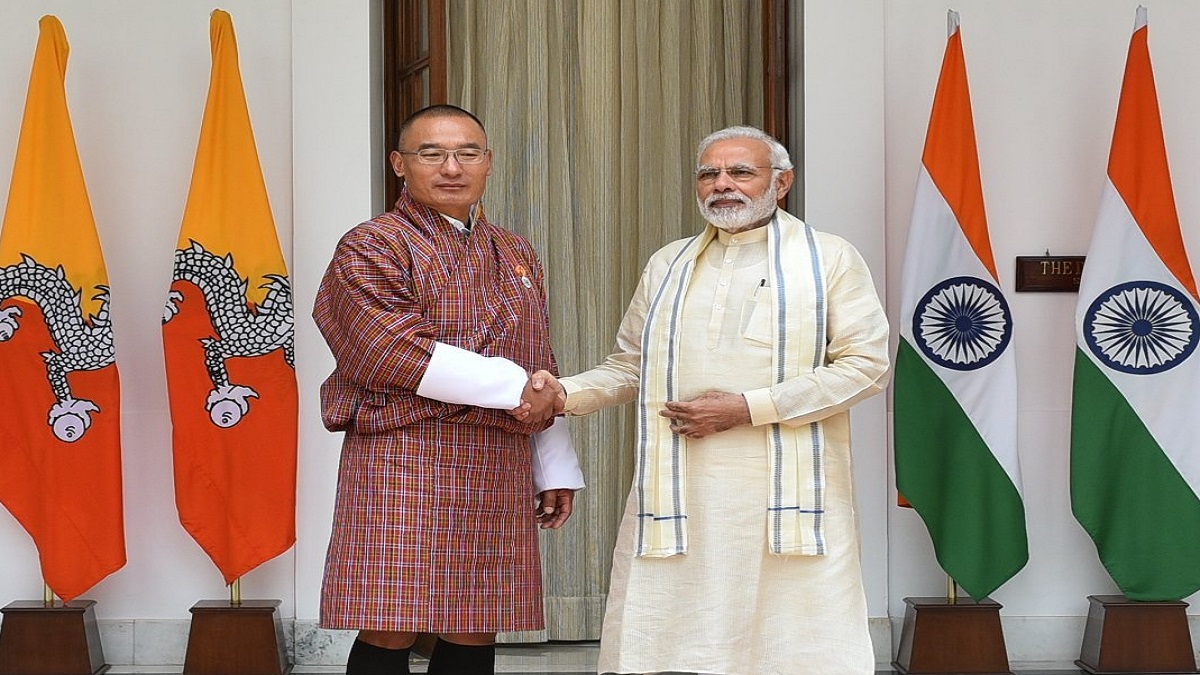New Delhi: Nobel laureate Muhammad Yunus, who recently assumed leadership of Bangladesh’s interim government, has lauded the student-led protests that culminated in the ouster of Prime Minister Sheikh Hasina. “There is no doubt… because of the student-led revolution the whole government collapsed,” Yunus stated during a Sunday night meeting with the protest leaders.
 Expressing his admiration for the students, Yunus recounted, “I said to the students, ‘I respect you… I admire you. What you have done is absolutely unparalleled… and because you urged me to take charge of the interim administration, I accepted.'”
Expressing his admiration for the students, Yunus recounted, “I said to the students, ‘I respect you… I admire you. What you have done is absolutely unparalleled… and because you urged me to take charge of the interim administration, I accepted.'”
Among those who have joined Yunus in the interim government are Nahid Islam and Asif Mahmud, two prominent student activists. The 84-year-old Yunus, a 2006 Nobel Peace Prize recipient for his work in microfinance through Grameen Bank, now serves as the ‘chief advisor’ of the transitional administration.
Yunus also emphasized that the recent wave of resignations from senior public officials, including the Chief Justice and the central bank head, were conducted within legal bounds, despite reports that they were pressured to step down.
“They wanted a new court,” Yunus explained regarding the students’ demands. “So they went to the Chief Justice, applied pressure, and he resigned. I’m confident they will find the legal justification for this, as all steps were legally followed,” he added.
Yunus further remarked, “Finally, the monster is gone,” referring to Sheikh Hasina’s exit and the end of what critics have described as an autocratic regime that suppressed dissent. However, he cautioned that the interim government must navigate its decisions carefully, as public support is not limitless. “Once you start making decisions, some will support you, and some won’t. That’s how it goes,” he warned.
The interim government came into power following weeks of violent clashes over a controversial jobs quota that forced Sheikh Hasina, a five-time Prime Minister, to resign and flee the country. Hasina left the Prime Minister’s residence in Dhaka just hours before it was overrun and flew to India on a Bangladeshi military aircraft. The 76-year-old leader, seen as a crucial ally of New Delhi, is reportedly seeking political asylum, possibly in the United Kingdom.
Muhammad Yunus, who faced corruption charges under Hasina’s government and was in Europe during her tenure, was selected by the protesters to guide the country through a democratic transition. His first official act was a solemn tribute to the over 450 people who lost their lives during the protests.
It remains uncertain when Bangladesh will hold elections to appoint a new Prime Minister. However, Sheikh Hasina’s son, Sajeeb Wazed Joy, told The Times of India that his mother is likely to return to Bangladesh to contest the elections whenever they are scheduled.
Indian Prime Minister Narendra Modi has extended his best wishes to Yunus, expressing hopes for a swift return to normalcy in Bangladesh and the safety of all minority communities. “India remains committed to working with Bangladesh to fulfill the shared aspirations of our peoples for peace, security, and development,” Modi wrote on social media platform X.
The change in leadership in Bangladesh has presented a diplomatic challenge for India, with China quickly expressing its support for the new government in Dhaka, signaling its intent to continue fostering strong bilateral relations.




